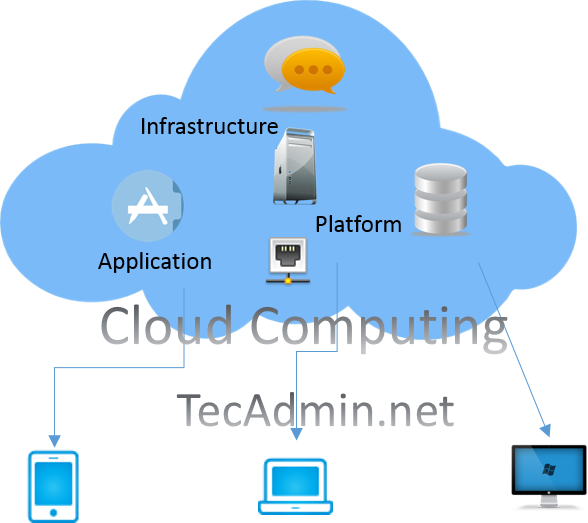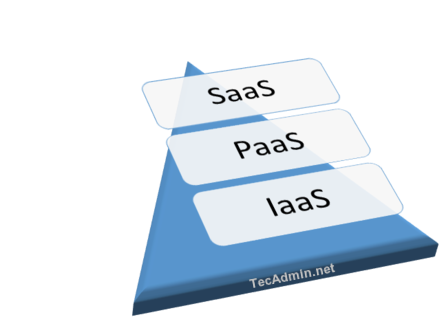Cloud computing has become a vital part of modern-day technology. It enables users to access data and applications from anywhere in the world using an internet connection. Cloud computing allows businesses and individuals to store, process, and manage data efficiently and cost-effectively. In this article, we’ll cover the basics of cloud computing and explore some of its advanced concepts.
What is Cloud Computing?
Cloud computing is the delivery of computing services such as servers, storage, databases, networking, software, analytics, and intelligence over the internet. In simpler terms, it is the on-demand availability of computer system resources, especially data storage and computing power, without direct active management by the user.
The cloud service provider is responsible for managing and maintaining the hardware and software required for cloud computing. Users can access these resources using an internet connection, paying only for the services they use. Cloud computing eliminates the need for physical infrastructure and IT staff, reducing costs and increasing efficiency.
Types of Cloud Computing
There are three types of cloud computing: public, private, and hybrid.
- Public Cloud Computing
Public cloud computing is the most common type of cloud computing. In this model, cloud service providers offer services to multiple clients over the internet. Public clouds are cost-effective, scalable, and easy to access, making them an attractive option for many businesses and individuals.
- Private Cloud Computing
Private cloud computing is a dedicated cloud environment for a single organization. Private clouds are more secure and customizable than public clouds but require more investment and maintenance.
- Hybrid Cloud Computing
Hybrid cloud computing is a combination of public and private clouds. In this model, an organization can use both public and private clouds to meet its computing needs. Hybrid clouds offer the best of both worlds, allowing organizations to benefit from the scalability and cost-effectiveness of public clouds and the security and control of private clouds.
Advanced Concepts in Cloud Computing
- Virtualization: Virtualization is the process of creating a virtual version of a computer system or resource, such as a server, storage device, or network. Virtualization enables cloud service providers to create multiple virtual machines on a single physical server, optimizing resource utilization and reducing costs.
- Multi-tenancy: Multi-tenancy is the ability of a cloud service provider to offer resources to multiple clients while ensuring data and resource segregation. In multi-tenancy, users share the same physical infrastructure, but their data is separated and kept secure.
- Cloud Storage: Cloud storage is the storage of data on remote servers that can be accessed over the internet. Cloud storage is highly scalable and cost-effective, making it an attractive option for many organizations.
- Serverless Computing: Serverless computing is a cloud computing model where the cloud service provider manages the infrastructure and automatically allocates resources to run applications. In serverless computing, users only pay for the resources used to run their applications, making it highly cost-effective.
- DevOps: DevOps is a set of practices that combines software development and IT operations. DevOps aims to shorten the development life cycle, improve software quality, and increase efficiency. Cloud computing enables DevOps practices by providing a scalable and cost-effective environment for software development and testing.
Conclusion
Cloud computing is a game-changer for modern-day technology. It provides a scalable, cost-effective, and secure environment for businesses and individuals to store, process, and manage data. Cloud computing has enabled the development of advanced concepts such as virtualization, multi-tenancy, cloud storage, serverless computing, and DevOps. As technology continues to evolve, cloud computing will continue to play a vital role in shaping the future of computing.



11 Comments
Great post! I am actually getting ready to across this information, It’s very helpful for this blog.Also great with all of the valuable information you have Keep up the good work you are doing well.
Nice blog.The information you shared is very effective for learners I have got some important suggestions from it. I would like to follow upon
Great tutorial…thx..
Great discussion Rahul. Cloud hosting is making its mark in the world of web hosting. It is by far one of the most powerful hosting service. Companies should ponder investing in this.
Thanks For Post Cloud Computing ?
Excellent post on Cloud computing.After reading this,I got some knowledge on cloud computing.Keep posting like this.
Yes, Its best way to telling what is cloud computing, i understand more…
I think that i can consider this article as a reference for me because it contains many important information at once and shortcut too much time, instead of reading more articles.
Thanks for this informative post. I always wanted to understand it simply.
this article which im looking for as we are beginner to learn about cloud computing.
nice…
Great tutorial on cloud computing….Keep it up dude.